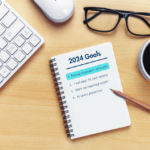In the final installment of our four-part series, we’ll take a look at the foods that will help keep you fit, active, and happy in retirement. We’ve already touched on the importance of eating right to keep your mind sharp, improve your fitness, and for better sleep. Taking care of yourself during retirement requires a holistic approach, and diet plays a huge part.
Obviously, eating the “right” foods – while enjoying the “fun” foods in moderation – is a good rule of thumb no matter your age. However, as you age, your metabolism slows, so not as many calories are needed. Some foods become more necessary because they help certain areas of the body remain strong.
Does this mean you’ll need to make wholesale changes to your diet? It really depends on your lifestyle, family history, and other factors. If you’ve been eating healthy and keeping fit for decades, keep going! You shouldn’t have to change much of anything.
However, if it’s time to take a look at the foods you’re eating, make sure to take it slow. “Cold turkey” diets work for some, but the majority of us need a plan in place. We recommend talking to your physician or nutritionist about your diet and taking a collaborative approach to healthy eating.
What To Eat
You heard it as a child and you’ll hear it now: eat your fruits and vegetables! The produce aisle has an option for almost any human ailment. Leafy greens like spinach and lettuce can help with macular degeneration and cataracts. Carrots help promote healthy skin and digestion, and blueberries help fight heart disease.
Foods high in protein are also recommended because they contribute to muscle growth or repair and provide support for bones and internal organs. Chicken, turkey, and lean cuts of beef will give your body the protein it needs. There are plenty of options for vegetarians, too: beans, lentils, green peas, tofu, and quinoa to name a few items.
How Much To Eat
There are guidelines in place to give you a starting point when it comes to your diet. The number of calories needed differs slightly between the sexes and is dependent on lifestyle, too. A 70-year old man that leads a sedentary life (little physical activity) needs around 2,000 calories daily while a woman only needs 1,600. Active lifestyles require more because more calories are being burned.
But it’s hard to figure out calories at every meal, right? Just remember that foods high in fat and sugar will eat those calories up faster than anything else. The food police won’t show up if you happen to go over the recommended calories, but you should be mindful of what you put on your plate.
This brings us to another age-old adage. Growing up, we were told to “clean your plate.” While that’s still true – no one wants to waste food – a simple solution is to just use a smaller plate. Reading labels for serving sizes also helps and learning portion sizes will make sure you never overeat.
For example, a piece of lean meat should be no bigger than a deck of playing cards. In time, you’ll be able to eyeball how much food is enough. At the start, you may need measuring cups to keep everything straight. But it gets easier over time.
Stay Hydrated!
A healthy diet never consists of just one thing. That being said, drinking enough water during the day is a necessity for aging adults. Dehydration is a very real issue as we get older – we just don’t have as much water in our bodies as we did when we’re younger.
Water plays an important role in almost every function of the body. It keeps your joints lubricated and helps with flexibility, keeps your skin from drying out, helps with blood flow to the muscles, helps regulate body temperature, and much more. And nothing tastes better after a mid-morning walk!
A good rule of thumb is to drink at least 64 ounces of water a day. Even if you never drank water before, it’s one of the easiest ways to help your body. Sipping water throughout the day, with your meals, while watching television, and so forth will help you meet that goal.
You can add a lemon slice or two to help with flavor and substitute milk for water on occasion. Some juices are also an acceptable replacement but read the labels. Many fruit juices contain a lot of sugar, which can be an issue for those with diabetes.
You can drink coffee and tea in moderation. But these drinks shouldn’t be counted towards your hydration goals. Caffeine acts as a minor diuretic, which could be counter-productive if you’re trying to keep your hydration levels up.
Dehydration Dangers
Early signs of dehydration can include a dry mouth, dizziness, tiredness, and cramping muscles. These are also warning signs of other illnesses, so dehydration could be an afterthought. But it is a very real danger: Advanced cases cause blurred vision, instability, increased heartbeat, and more.
Urinary tract infections, kidney stones, and even kidney failure are possible side effects of dehydration. The body can last for weeks without food, but only a handful of days without water. The human body is 60 percent water and vital organs (heart, brain, lungs) consist of even more. So keep them hydrated!
The Pizza Question
The most important question of any diet is this: Can you still eat pizza? Although that’s a little joke, you may be worrying that you’ll have to give up the foods you love. You’ll still be able to enjoy many of the foods you love – you’ll just need to reimagine what they look like.
Replacing flour crusts with a whole grain option, choosing low-fat cheese, and replacing fatty meats with vegetables keep pizza in the mix. Smoothies make vegetables easier to consume, and tastier when combined with your favorite fruits. Paying attention to the cut of meat means you can still enjoy the occasional steak.
This is your health, your future, your quality of life. Playing with the grandkids, traveling, or taking in 18 holes of golf becomes that much easier when you’re at a healthy weight, when you’re fit, and when your mind is firing on all cylinders. By taking a holistic approach to your health, you’ll enjoy your golden years that much more.
Part of the enjoyment is removing the stress of figuring out the right Medicare plan for you. Guided Medicare is an independent agency that has access to more than 50 different plans from more than 30 different carriers. We’ll do the legwork for you and we’ll do it for free. Why worry if you don’t have to?









